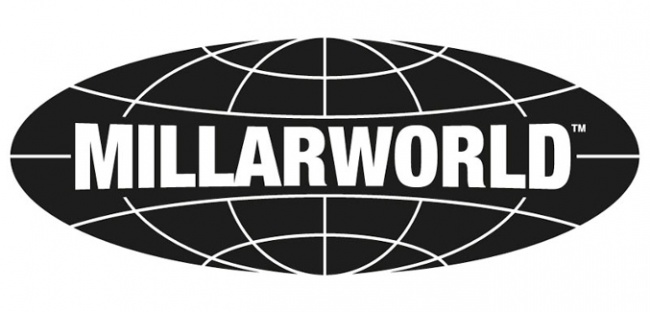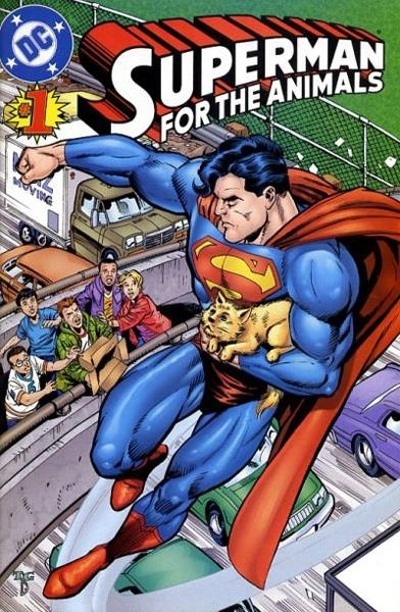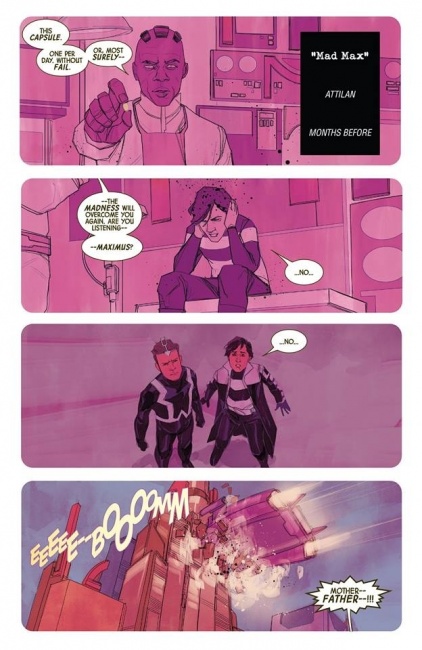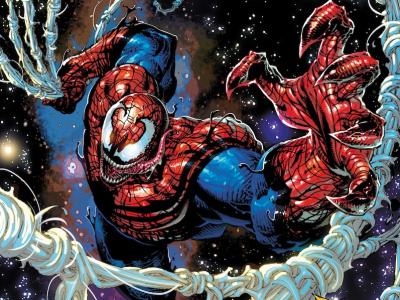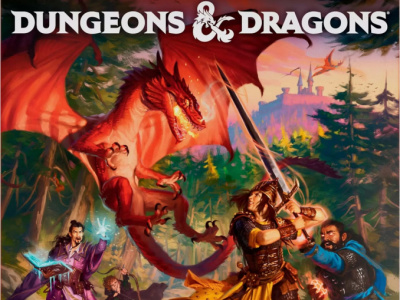Confessions of a Comic Book Guy is a weekly column by Steve Bennett of Super-Fly Comics and Games in Yellow Springs, Ohio. This week, Bennett looks at the Millar-Netflix deal and his favorite Millar comic.
I have never been the biggest fan of the works of Mark Millar, which I suppose is why his deal with Netflix (see "Mark Millar's 'Millarworld' Acquired by Netflix") went by without so much as a comment from me. It was as big a thing for Netflix (as Variety put it, it was the "first company acquisition in its history") as it was for Millar, who has proved to be no slouch getting his properties (Wanted, Kickass, Secret Service/Kingsman) adapted to the screen on his own.
It was also undoubtedly a good deal for both parties. The so-called "Millarworld" contains a lot of properties like Huck, Empress, Starlight and Superior, which potentially have mainstream appeal, and Netflix can’t seem to acquire enough content. But for me, Millar isn’t the burgeoning entertainment mogul he clearly wants to be, but rather someone who became a "name" writer on the strength of comics featuring transgressive material. Content which would never fly with a wider audience. Compare the difference between the cinematic versions of Wanted and Kick-Ass to his original comics. While his Ultimates did inspire the Samuel L. Jackson version of Nick Fury, it is worth noting that the Hulk in The Avengers movies wasn’t the insane mass-murdering cannibal version of the character Millar wrote.
Ultimately it wasn’t Millar’s previous predilection for focusing on the perverse and depraved that I found unappealing, so much as the fact his stories were almost always lacking in anything even approximating human feeling. There was, however, one exception, a comic of his that I really liked: Superman: For the Animals. I wrote about it here back in 2011 (see "Confessions of a Comic Book Guy--And Now For A Public Service Announcement") and concluded my comments by writing it was “sadly out of print and really shouldn't be.”
The story has remained out of print, so you might be able to approximate the surprise I felt when I read the piece "DC Comics to Publish Superman by Mark Millar Collection with Some Odd Choices" on Bleeding Cool. As the headline indicates. DC will be doing a collection of Millar’s work for the publisher, Superman by Mark Millar, which will be published next June.
What makes the comics included in it "odd choices", according to Bleeding Cool, is "half of it only has Mark Millar scripting over someone else’s plots, and the other half have Superman comics that the actual Superman is hardly in." The article describes Superman: For the Animals as "a giveaway comic from around 2000, that doesn’t actually have a lot of Superman in it — apart from his reading letters about animal cruelty."
While that assessment is factually correct, there’s a great deal more to it than just that. It’s always easy to dismiss "public service announcement" comics as clumsy propaganda that are as ineffective as it is well meaning. But Superman: For the Animals is an example of PSA comic that delivers its worthwhile message simply and subtly without any heavy-handed lectures. Drawn by Tom Grummett and Dick Giordano, it concerns a group of teens who become involved in escalating acts of animal cruelty. While it’s true Superman only makes what amounts to a glorified cameo in it, he quietly provides the characters’ innate moral authority. Here he acts as a symbol, the ultimate example of why you should never pick on anyone weaker than yourself.
What I didn’t know about Superman: For the Animals when I originally wrote about it was how it was created. According to a piece on Comic Book Justice, Richard De Angelis, Director of Communications for the Doris Day Animal League, was asked to produce a comic book that promoted humane values to children. He named the program Comics for Compassion, contacted DC Comics and in his own words, "the next thing I knew, I was living a fanboy’s dream." Yes, that’s right, De Angelis is one of us.
He’s credited as a Creative Consultant on the comic and came up with the title, based on DC’s 1991 environmental comic Superman: For Earth as well as the idea for the cover. The DDAF ordered 75,000 copies of the comic, 16,000 of which were polybagged with kid-friendly comics (as I recall at the time, a number of retailers were unhappy about paying the extra freight for comics they didn’t order). The remainder was distributed to "parents, teachers, scout leaders, and humane educators across the country."
I hope Superman by Mark Millar will get a new audience to read Superman: For the Animals. The same way I hope DC reprints it as one of its $1 DC Comics Essentials and make digital copies available on comiXology, preferable for free. Because as well as being a very good Superman story, and just a good story, it’s also a fine example of something we need a whole lot more of: compassionate comics.
As sort of a coda to last week’s column (see "Confessions of a Comic Book Guy - Trying To Make Inhumans A Thing"), I’ve found most of the recent Inhumans comics to be mostly, at their very best, "meh." On the other hand, Inhumans: Once and Future Kings by Christopher Priest and Phil Noto is just outstanding, particularly the Lockjaw backup strips. The second issue, which came out last Wednesday, is of particular interest to me because for a long time I’ve moaned about why a supposedly super advanced society couldn’t buy a freaking clue and prescribe longtime villain Maximus the Mad, someone clearly exhibiting symptoms of Bipolar Psychosis, some antipsychotic drugs. Well, writer Christopher Priest has finally done just that.
The opinions expressed in this column are solely those of the writer, and do not necessarily reflect the views of the editorial staff of ICv2.com.
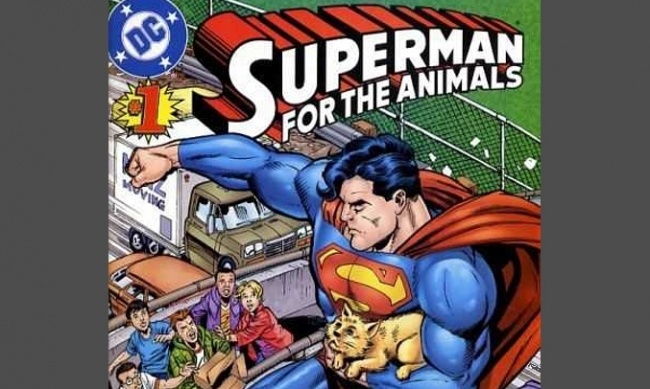
Column by Steve Bennett
Posted by Steve Bennett on September 13, 2017 @ 4:11 pm CT
MORE COMICS
'Venom' #252 to Feature Backup Story with New Suit, Plus New Story by DeFalco and Frenz
August 4, 2025
Venom #252 will feature a backup story about Venom’s new suit as well as a backup story by Tom DeFalco and Ron Frenz, the creators of the symbiote suit.
Showbiz Round-Up
August 4, 2025
The post-SDCC showbiz news is still spicy a week after the show's conclusion. It's time for another round-up!
MORE COLUMNS
Column by Scott Thorne
August 4, 2025
This week, Scott Thorne addresses some comments on last week's column and the right price for starter products.
Column by Scott Thorne
July 28, 2025
This week, columnist Scott Thorne comments on the Edge of Eternities prerelease and on Magic: The Gathering news from the Hasbro earnings report.



